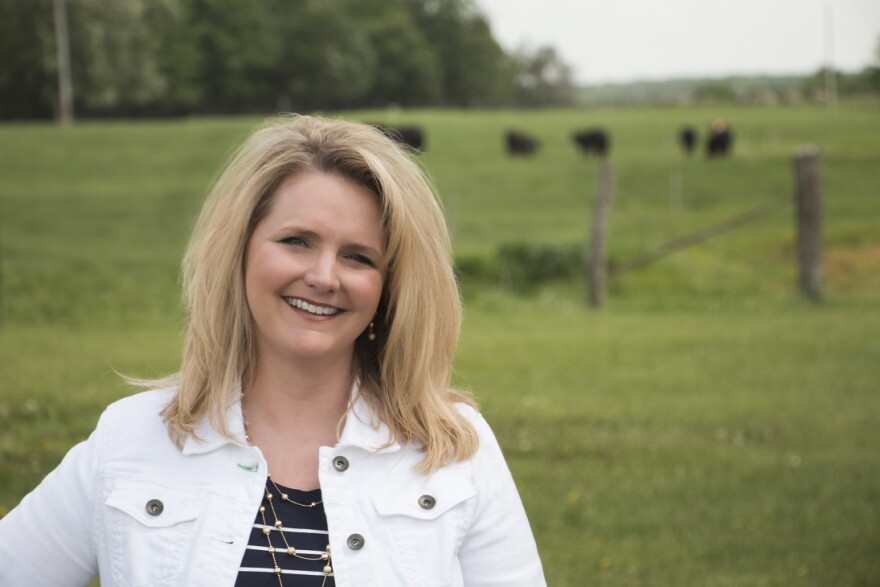Chris Chinn’s first year on the job has not been boring.
Her tenure as director of the Missouri Department of Agriculture began with flooding in the spring that’s now causing delays in crop harvests. Along the way, Chinn’s office had to deal with contamination in southeastern Missouri that triggered a temporary ban of the herbicide Dicamba. It's an issue that caught the attention of the Missouri General Assembly and farmers across the state.
St. Louis Public Radio’s Marshall Griffin caught up with Chinn to talk about those challenges and her department’s major priorities.
On reviewing the 4,700-plus rules and regulations governing agriculture in Missouri:
Since Gov. Eric Greitens appointed her as director, Chinn and her staff have spent much of 2017 reviewing each state law, rule, and guideline within her department.
“Governor Greitens promised that he would reduce the amount of regulations,” she said. “We are looking at all of our rules and regulations, and evaluating them, then we will present them to decide if we want to get rid of them. If it’s a statutory requirement it’ll have to go through the legislature to be removed, (but) if it’s just a guideline then that’s something that we can take care of here, maybe at the department level.”
She added that they’re comparing notes with the U.S. Department of Agriculture, as the Trump administration conducts its own rule review.
“The USDA has reached out to all (its) state counterparts, asking (about) the same thing we’ve been doing here in Missouri, so if there was a rule or regulation that a state felt was burdensome or no longer necessary, USDA was wanting that feedback as well,” she said.
On this summer's Dicamba ban:
“On July 7th, we issued a temporary stop-sale and use order…this was just a temporary pause so that we could regroup,” said Chinn. “We had over 130 complaints at that time…six days later we were able to issue a special local-needs label. (Monsanto) worked very closely with us, as well as the EPA, to make sure that we had a new label that puts some safeguards in place so we could use that product more responsibly.”
On the 2017 fall harvest:
Chinn said flooding during the spring caused a delay in planting crops.
“With the equipment we have today, we will be okay,” she said. “We’re about 80 percent done on corn, 63 percent done on (soy)beans…I was in the Bootheel just this week and saw lots of cotton pickers and combines just going as hard as they could, even through the night hours.”
On agribusiness opportunities in China following Gov. Eric Greitens' trade mission earlier this year:
“There were no agreements signed, but we were just there to build relationships, to learn what opportunities were there,” she said. “They’re very interested in Missouri beef and dairy products.”
On the Missouri State Fair's role in educating kids about agriculture:
“We had over 30,000 livestock exhibits from 4H and FFA kids, so that was exciting to see their enthusiasm and their interest in agriculture,” she said. “We did a (campaign to feed hungry kids) – the FFA kids packed over 52,000 meals that’s going to be distributed all across the state for families in need. That was an opportunity for those kids to have a service project to give back (to the community).”
On the Department of Agriculture's MORE campaign:
MORE is a public relations initiative launched this year that Chinn said will highlight what Missouri agriculture offers to its citizens and to the rest of the world. It also lets farmers and ranchers in Missouri know that her agency is available to listen to them and help them do their jobs.
“This year we’re not going to have a governor’s conference on agriculture – instead we’re going to take our team and go straight to agricultural groups and hit their annual meetings so that we can reach out to farmers and ranchers and talk to them. We want their input.”
Follow Marshall Griffin on Twitter:@MarshallGReport





